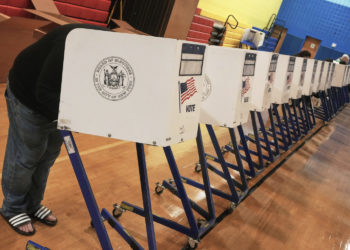Colossal Biosciences, the Dallas-based biotechnology company known for its bold mission to resurrect extinct species such as the woolly mammoth and the dodo, announced its first-ever acquisition today: ViaGen Pets & Equine, a Texas company specializing in animal cloning and genetic preservation.
The deal, confirmed by Business Wire and The Austin American-Statesman, marks a major expansion of Colossal’s technical and commercial capabilities. ViaGen, which has operated for more than two decades in the animal cloning industry, will continue to operate as a subsidiary under its existing leadership.
“ViaGen’s expertise in cloning and genome preservation accelerates our mission to restore lost biodiversity,” Colossal co-founder and CEO Ben Lamm said in a statement. “Together, we’ll advance the frontiers of de-extinction science while expanding applications in conservation and animal health.”
The acquisition follows a period of rapid growth for Colossal. Earlier this year, the company raised $200 million in Series C funding, valuing it at roughly $10.2 billion, followed by an additional $120 million round announced in September, bringing total funding to more than $550 million. The latest capital infusion is directed toward avian genomics and the effort to revive the dodo bird.
Colossal currently leads three high-profile projects: reviving the woolly mammoth through cold-resistant Asian elephants, restoring the extinct Tasmanian tiger (thylacine), and bringing back the dodo through genetic reconstruction. The company recently claimed to have created genetically engineered “woolly mice,” incorporating mammoth-like traits as a proof-of-concept for future mammoth embryos. It also celebrated the first birthday of two canids—nicknamed Romulus and Remus—engineered to express traits of the extinct dire wolf.
The ViaGen acquisition extends Colossal’s reach into commercial animal genetics. ViaGen offers cloning services for pets, horses, and endangered species, operating under U.S. and international regulatory oversight. Analysts say the move could help Colossal diversify its revenue beyond de-extinction research. “Pet cloning is already a functioning market,” one industry observer said. “It gives Colossal a revenue stream and access to real-world cloning infrastructure.”
The company was named to the TIME 100 Most Influential Companies of 2025, reflecting its growing influence across biotechnology and conservation circles. Yet its work remains controversial. Critics argue that creating hybrid analogues of extinct species—rather than genetically identical replicas—raises questions about what constitutes true “de-extinction.”
“You can’t bring back a species just by making another animal look vaguely similar,” one evolutionary biologist told KPBS in response to Colossal’s dire wolf announcement. Ethicists and conservationists have also expressed concern about ecological and moral risks, questioning how engineered species might fit into modern ecosystems.
Colossal maintains that its technology will strengthen conservation rather than replace it, emphasizing applications in genetic rescue for endangered animals and biodiversity restoration. Supporters argue that its breakthroughs in genome editing and reproductive biology could have far-reaching implications, from wildlife preservation to biomedical research.
The acquisition of ViaGen suggests that Colossal is evolving from an ambitious startup into a full-spectrum player in the global genetics industry—one equally focused on science, conservation, and commercial viability.
The post Colossal Biosciences Update: Lab That Brought Back Dire Wolf Buys Pet-Cloning Company appeared first on International Business Times.




